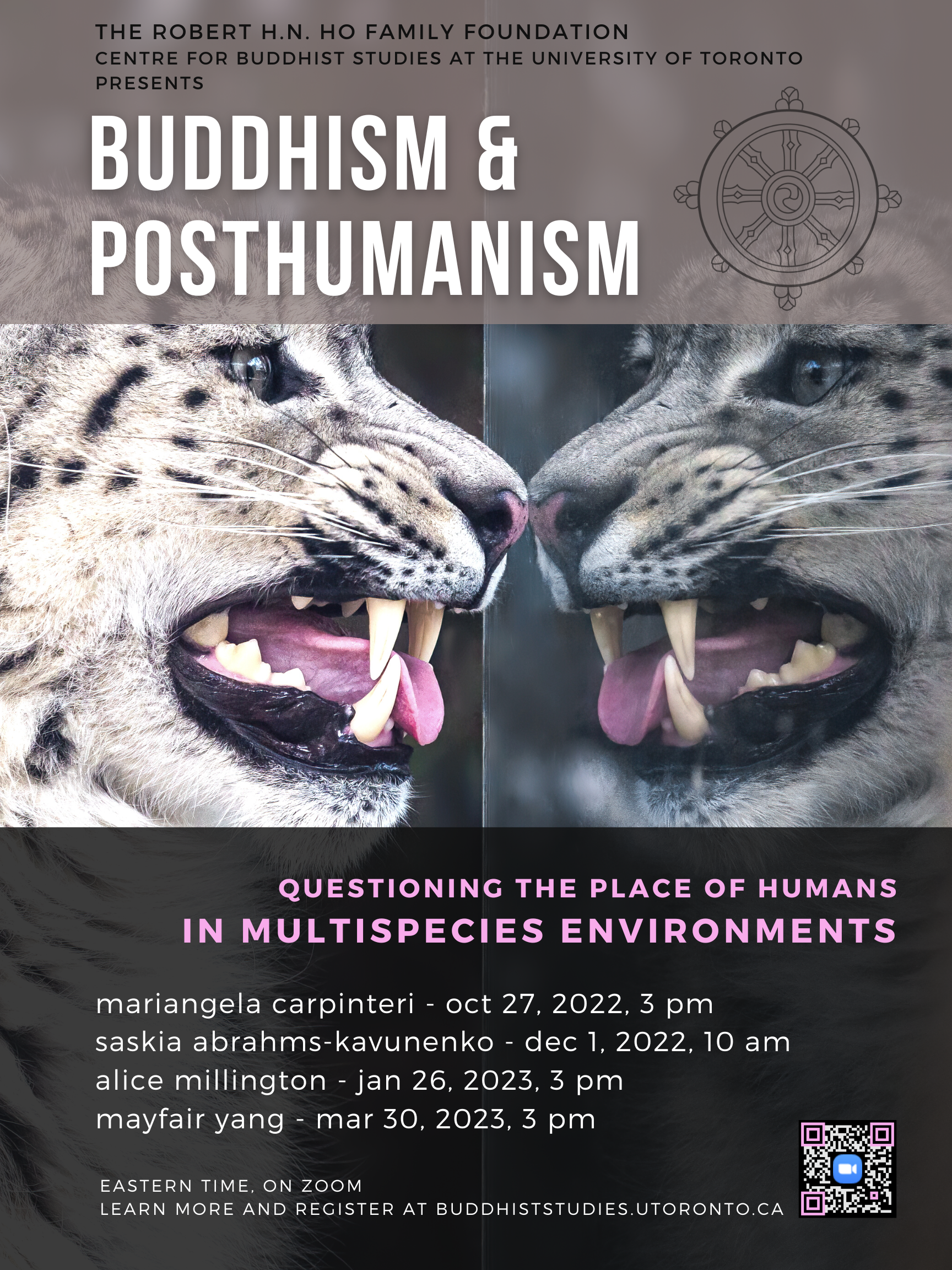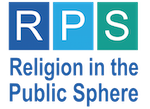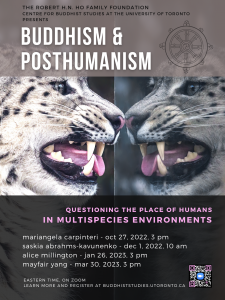
How are anthropocentric attitudes driving the climate crisis? What do Buddhist traditions say about these attitudes? What is our responsibility to non-human animals and the natural world? What do Buddhists say about the place of humans in multispecies environments?
Please join us for our second series in this important conversation Buddhism and Posthumanism: Questioning the Place of Humans in Multispecies Environments, featuring researchers, activists, and Buddhist studies scholars focused on reconsidering the place of humans in an interconnected world.
What is posthumanism? Posthumanism acknowledges that humans are an animal like any other and that we are but one equal element in the diverse web of nature. As such, posthumanism also acknowledges that the pursuit of human progress should not presuppose human supremacy, and that non-human animals should have the conditions necessary for their own flourishing as well. In light of humanity’s current course, it recognizes too that destructive environmental practices harm a vast network of beings, humans and non-humans alike, threatening our collective futures.
Many aspects of Buddhist traditions resonate with these ideas, such as Buddhist models of self-cultivation and of generating compassion for all beings. Yet deeply embedded notions of human superiority sit in tension with these same posthumanist ideas. The aim of this series, then, is to explore Buddhist resonances, departures, and contributions to posthumanist attempts to meet the present climate emergency, and to consider paths forward involving individual and collective action.
 This series is co-sponsored by the Religion in the Public Sphere initiative of the Department for the Study of Religion at the University of Toronto. The events are organized by Rory Lindsay, Assistant Professor, and Frances Garrett, Associate Professor of Buddhist Studies in the Department for the Study of Religion at the University of Toronto.
This series is co-sponsored by the Religion in the Public Sphere initiative of the Department for the Study of Religion at the University of Toronto. The events are organized by Rory Lindsay, Assistant Professor, and Frances Garrett, Associate Professor of Buddhist Studies in the Department for the Study of Religion at the University of Toronto.
Registration
Each event will be held as an online Zoom meeting and registration is required. You may register at any time to join a lecture. Your registration is valid for the whole series, and you may attend as many lectures as you like. You will automatically receive reminders for the lectures.
Register in advance for the meetings in this series:
https://us02web.zoom.us/meeting/register/tZ0kduirqDopGtx1sZBeru31Lrdgz0BtoMYs
After registering, you will receive a confirmation email containing information about joining the meeting.
Schedule
Mariangela Carpinteri – Oct 27, 2022, 3 pm ET
Saskia Abrahms-Kavunenko – Dec 1, 2022, 10 am ET POSTPONED until Spring 2023 (date TBD)
Alice Millington – Jan 26, 2023, 3 pm ET
Mayfair Yang – Mar 30, 2023, 3 pm ET


